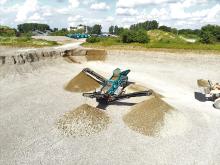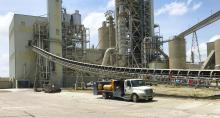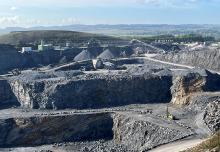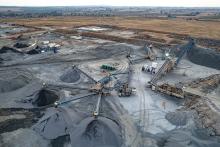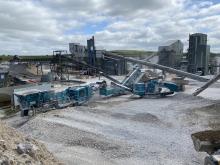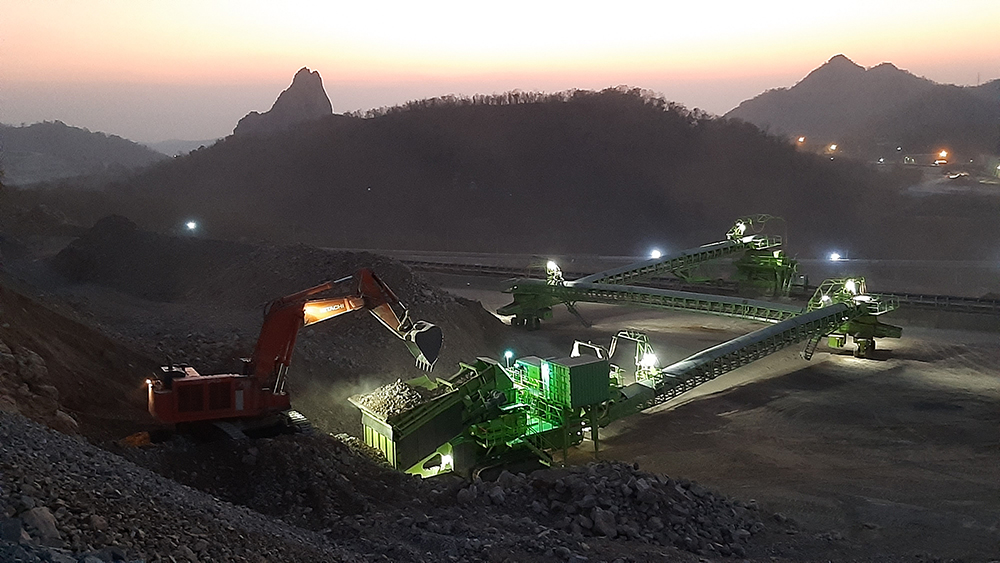
Following its successful usage of Metso Outotec’s in-pit crushing and conveying (IPCC) systems, it was no surprise that Thailand’s TPI Polene Public Company Limited (TPI Polene) turned again to the global premium building materials plant manufacturer to help reduce the carbon footprint and running cost of its cement plant, located 100 kilometres north of Bangkok, in Saraburi province.
Among the top three manufacturers and distributors of cement products in Thailand with an impressive history regarding plant sustainability, TPI Polene was the first cement manufacturer in Thailand to be awarded an ISO 9002 Certification for surpassing industrial and environmental protection standards. On top of that, they were also the first cement manufacturer to be awarded the Carbon Label for both Portland cement and mortar cement products. The Carbon Label demonstrates that the producer has proven data that shows it has significantly reduced CO2 emissions.
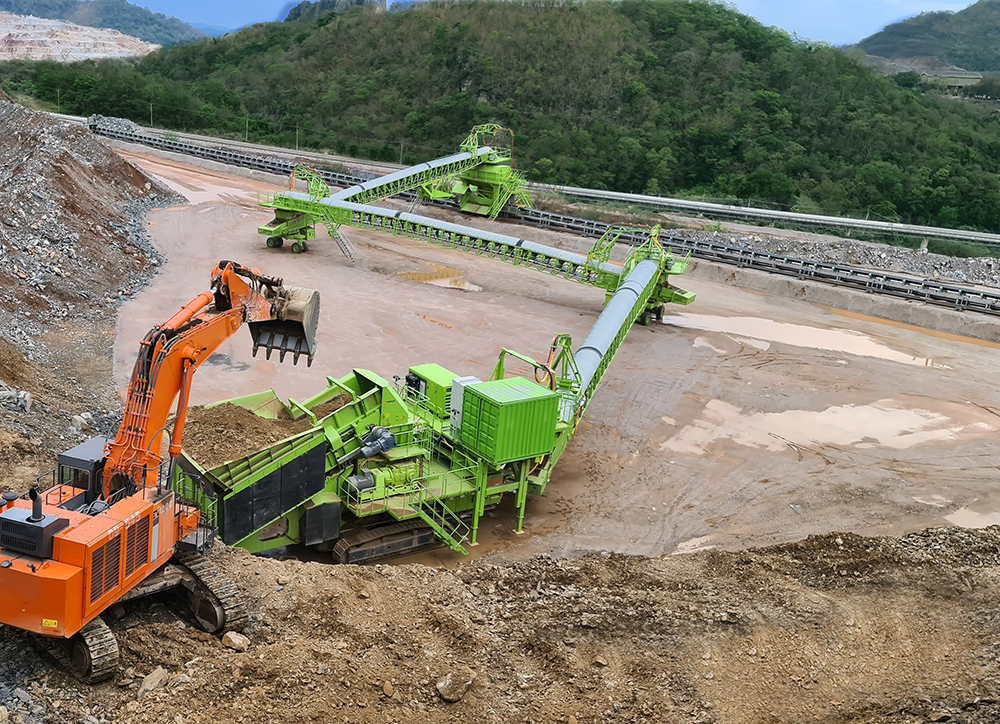
TPI Polene operates waste-heat-recovery power plants that generate electricity from waste heat emitted from TPI Polene’s four cement production plants. They use refuse-derived fuel (RDF) to generate electricity in their RDF-fired power plants. As a result, TPI Polene has become a power plant operator in Thailand, with the largest waste-to-energy power plant operations and renewable energy to enhance environmental efficiency.
In 2008, Metso Outotec’s Thailand distributor, Uawithya, organised IPCC seminars for various Thai cement producers. After learning of Metso Outotec IPCC offerings, TPI Polene implemented IPCC systems into its operation. The move was mostly due to the personal involvement of company CEO Prachai Leophairatana, seen as a keen new-technology adopter within Thailand’s industrial sector.
“TPI Polene is a Public Company Limited with a very technical leadership, so it takes a different and more personal approach to decision making,” said Jorma Kempas, product manager, Lokotrack Solutions, Metso Outotec. “There is always a risk when you try something new, and many stakeholders in big corporations choose to avoid that risk. It was such a smooth process working with him on this project, and he could see himself that we were making a difference.”
Operational costs, worker safety, and CO2 emissions are challenges most mines and quarries face today. While there certainly isn’t a magic remedy that would solve all problems overnight, Metso Outotec’s in-pit solutions, such as IPCC, are widely recognised as a good place to start.
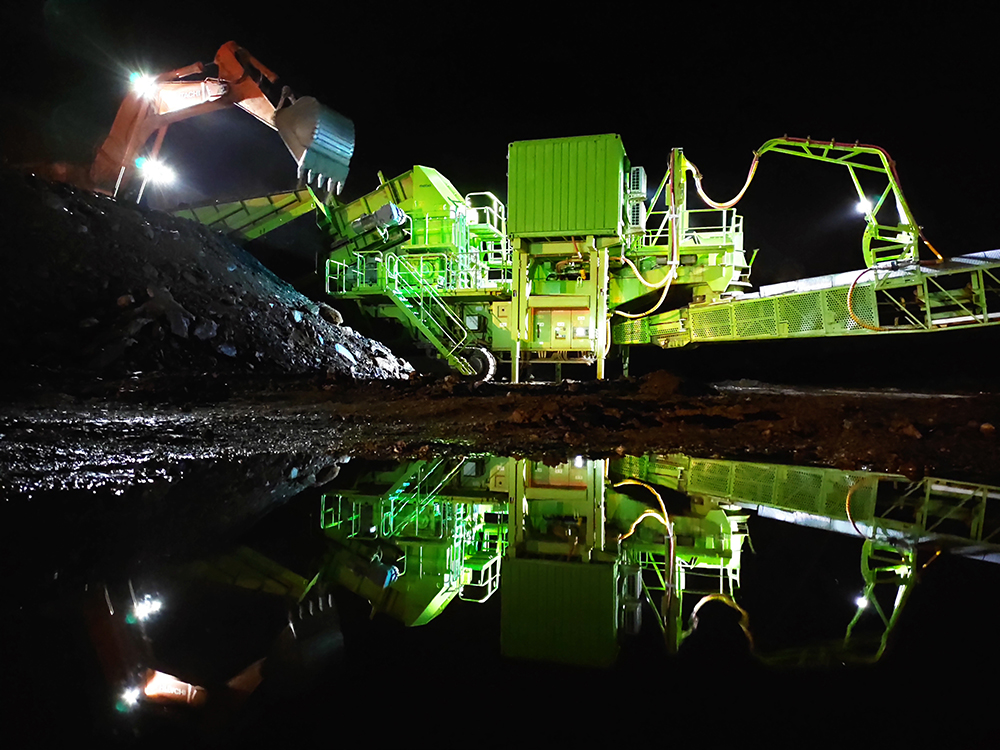
In 2012, Metso Outotec delivered the first IPCC systems to the TPI Polene cement plant in Saraburi province, replacing its conventional truck haulage with mobile crusher and belt conveyers. This consisted of three Lokotrack LT1418E mobile impact crushers and Lokolink belt conveyors, each producing 600-700tph of 0/80mm limestone for cement production. Metso Outotec also delivered the in-pit conveyors, which convey the crushed rock from Lokolink conveyors to the overland belt conveyor. Since this successful implementation, TPI has reported a 50% haul cost saving compared to truck haulage.
Based on its positive experience from the earlier IPCC installation, TPI wanted to utilise the IPCC concept for an upcoming project. The objective was to initiate the specific IPCC benefits, such as lower haulage cost, less dust and exhaust gas emissions, and improved worker safety.
In 2017, TPI launched a project to open a new deposit at its Saraburi site to extract shale and andesite for clinker production. Initially, Metso Outotec planned to deliver a Lokotrack with a jaw crusher. However, since the deposit contains a lot of fine material, which appears highly sticky in the rainy season, it was decided to use a sizer type of crusher fed by the apron feeder instead of a jaw or impact crusher.
At this time, Uawithya Mining brought Komatsu Mining and its sizer technology into the loop. As a result of working together with Komatsu, the Metso Outotec LT1510RC was developed. Paired with the mobile Lokolink conveyors, this duo working in parallel gave TPI Polene the ability to maximise its operation while minimising its cost and environmental footprint.
The TPI Polene Saraburi cement plant is quite large in size and requires a lot of traffic and movement throughout the vast space. With multiple operating pits and the creation of a completely new pit to extract shale and andesite for clinker production, it was crucial to the site that they focus on optimal plant efficiency. With the robust and reliable mobile Lokotrack, the track-mounted construction allows machines to move around a production site or between sites easily.
The LT1510RC (rated up to 1500tph) produces 900-1200tph (depending on the type of feed) of 0/300mm material. This is conveyed through the Lokolink conveyors and in-pit conveyors supplied by Komatsu Mining onto the overland conveyors that bring the material into the process plant.
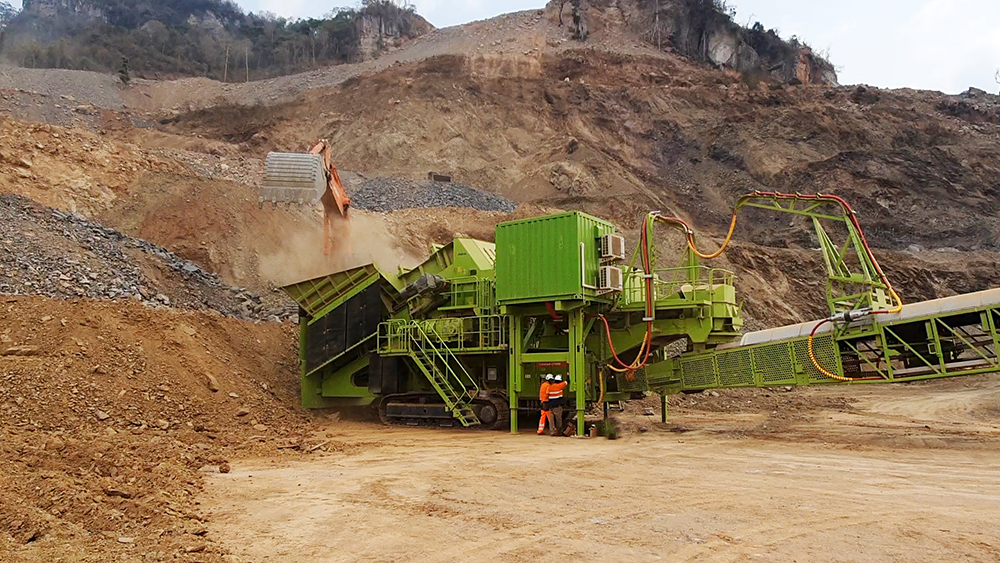
A mobile Lokotrack with a sizer is directly loaded by a hydraulic excavator. Metso Outotec mobile Lokolink conveyors transfer the crushed material to a shiftable conveyor system. The secondary sizer (by Komatsu) is located at the first transfer point of the fixed conveyors, crushing the material down to less than 50mm. Overall, material hardness tends to vary between 20 to 200 MPa.
It is no secret that sticky feed is a rising global issue in mining and aggregates production and can cause various challenges within the operation. Whether it’s clogging the system, taking the time to clean, or starting the process again – sticky feed is a complete nuisance to any operating plant. However, the TPI Polene cement plant has begun to take action against this issue by implementing the Metso Outotec IPCC solution.
“The biggest benefit is that even with the sticky material, they are able to produce – this is the main thing,” says Jorma Kempas. “And they are using the IPCC system, which has lower cost and is environmentally better than if they were using a conventional truck haul. The site focuses on sustainability and lower operating cost, which we also strongly believe in.”
Fuel costs are also a major expense in plant operation. Therefore, low consumption is essential. In using the IPCC systems and the Lokotrack and Lokolink, the large site can further optimise their production and maximise their safety and sustainability - all whilst minimising cost at the same time.
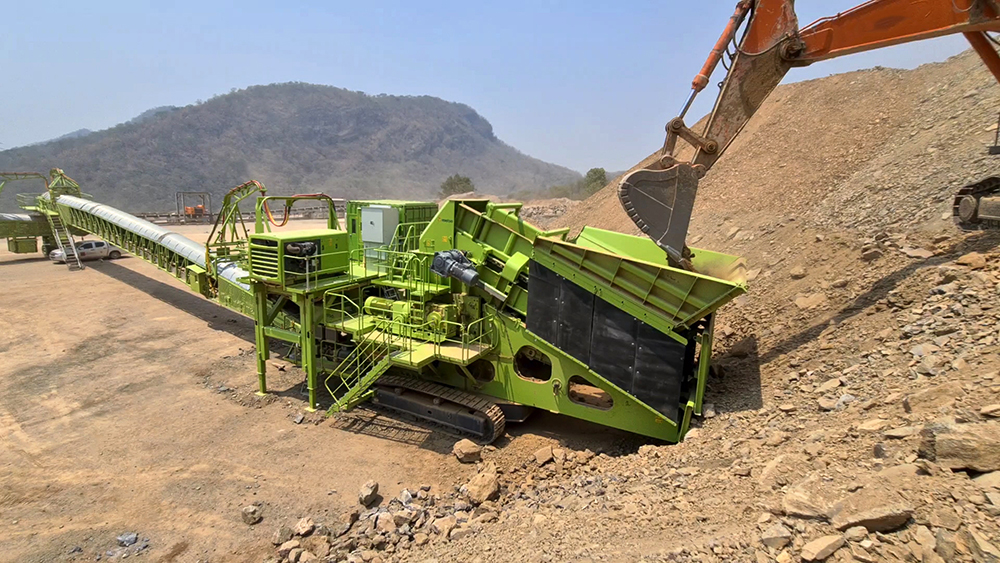
“It’s important to note the safety aspect too – from a health and safety perspective, it reduces their mobile fleet, so they’ve got less traffic movement on the site, which is much safer,” Kempas explains. “From an environmental perspective, it reduces fuel consumption and the environmental impact of dust emissions. From an operational perspective, it does everything they need it to do and more.”
Following this success, TPI Polene has learned that Metso Outotec can deliver these systems and implement them responsibly and effectively. Metso Outotec says it takes great pride in creating and continuing its positive working relationship with the customer and distributor and looks forward to future opportunities that can arise on the back of this project.
“The reputable connection we have with our distributor Uawithya, and the site itself, is an excellent example of working together,” says Campbell Johnson, capital distribution manager - Asia Pacific, Metso Outotec. “The fact that they continue to choose us, and we are still the one, speaks volumes on our capabilities. From both a brand position and an operational point of view, the support we’ve provided constantly to our distributor has helped everything move as smoothly as possible.”
Metso Outotec says it is always exciting to find a company that exemplifies the same core values as itself. A company spokesperson said: “With our strong focus on sustainability and helping our customers optimise their operation, our collaboration with TPI Polene is understandably fitting. Through the choices we make together with our customers, we can influence the outcomes and take the industry towards more responsible use of the world’s precious natural resources. At Metso Outotec, our core expertise is to help our customers transform the industry. That’s why we are the partner for positive change.”

